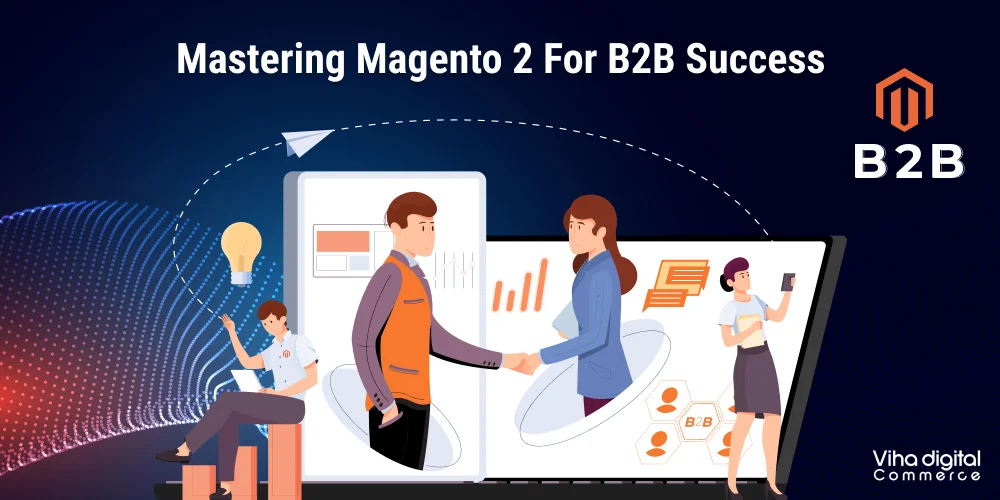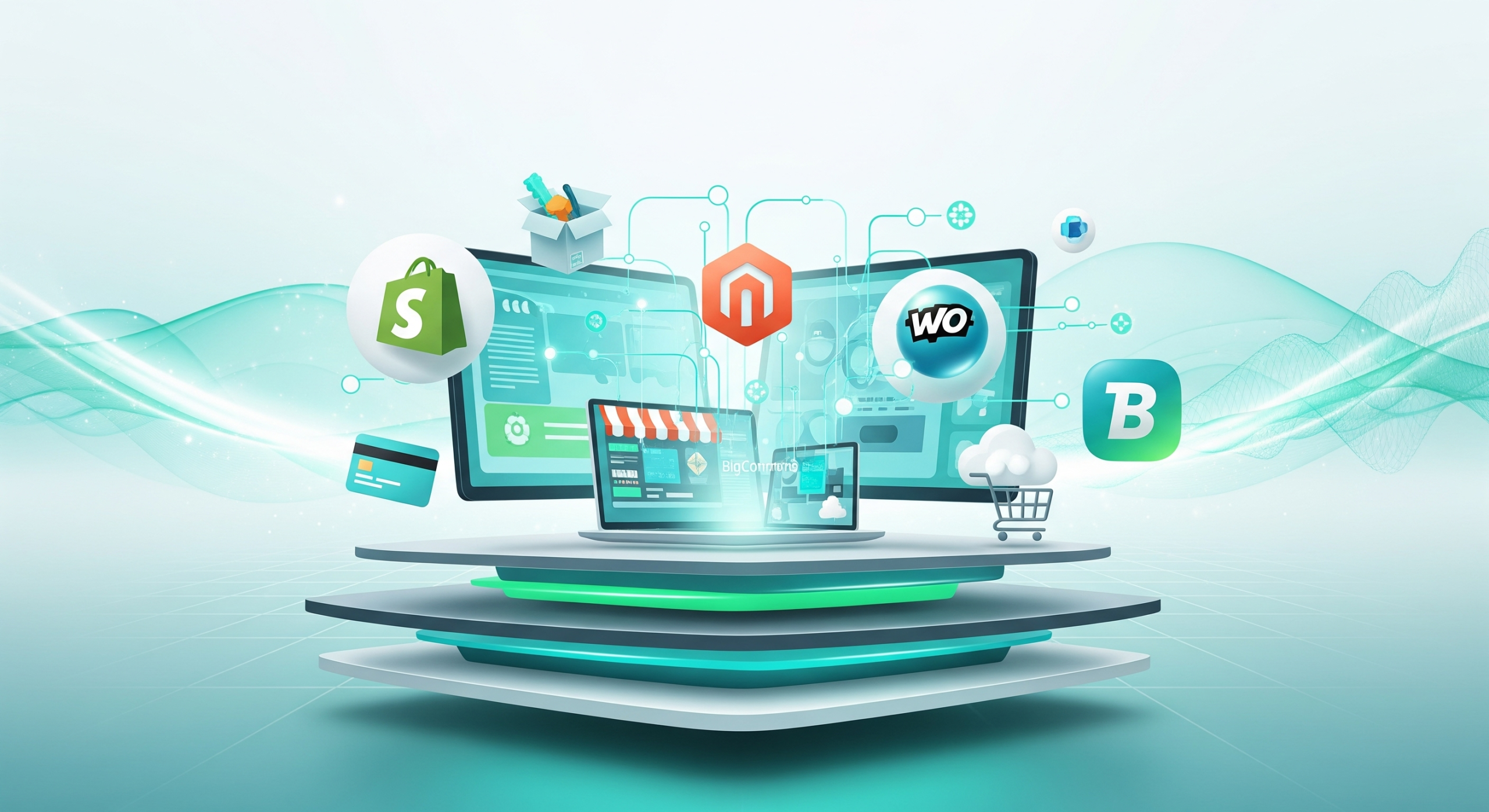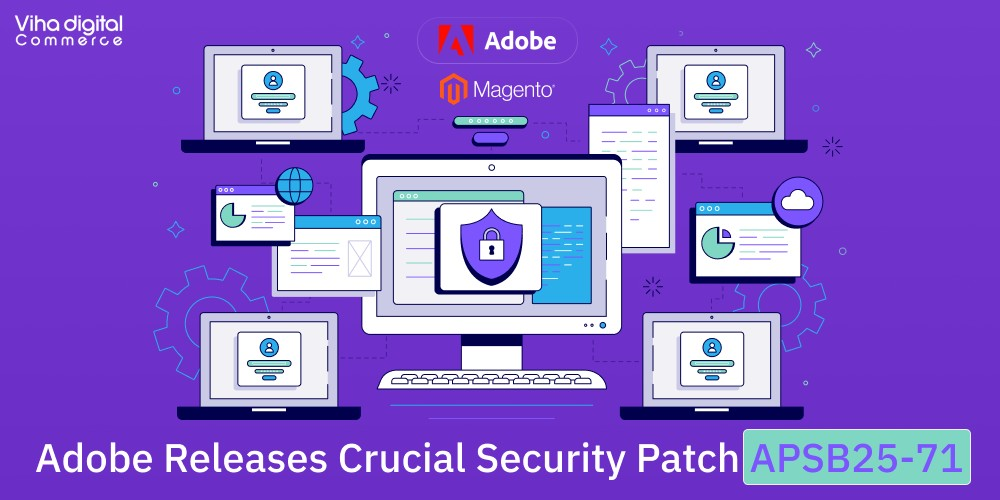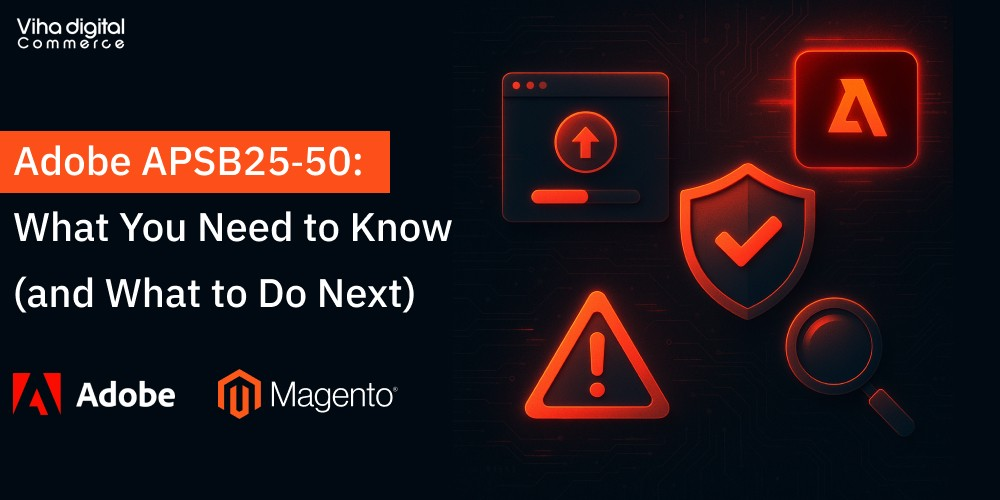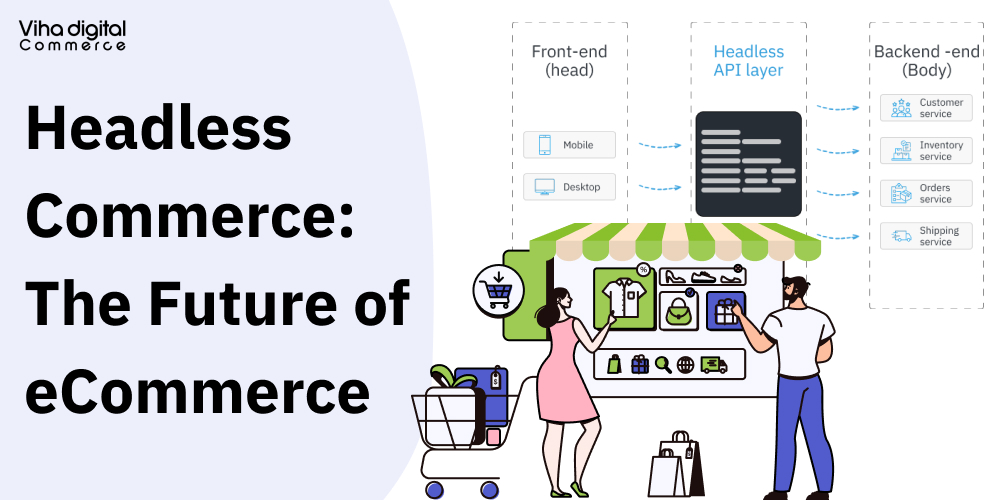How Magento Commerce Can Power Your B2B and B2C Business
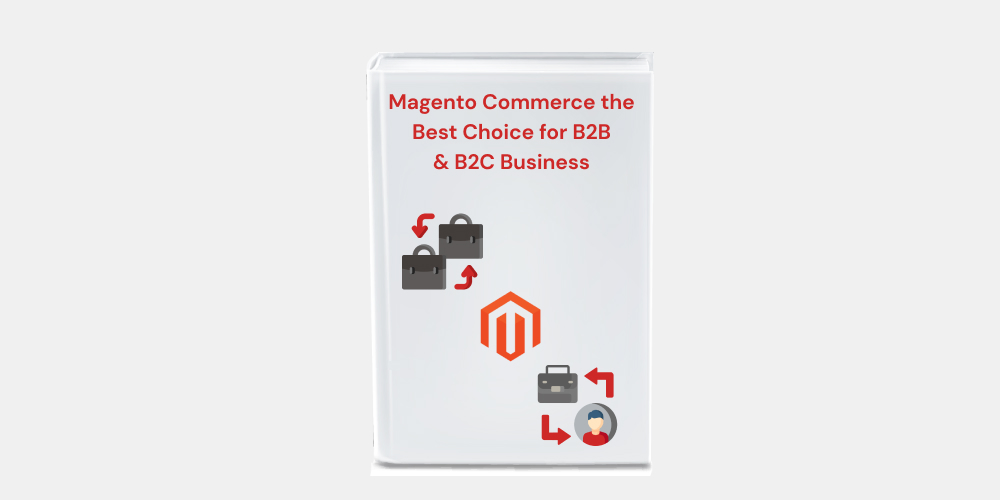
Magento Commerce is the world’s leading provider of eCommerce platforms. Over 260,000 businesses in more than 90 countries have chosen Magento Commerce to power their online stores, including some of the world’s leading brands such as Coca-Cola, Ford, and Olympus.
Magento Commerce provides a flexible and scalable eCommerce platform that can be tailored to meet the specific needs of businesses of all sizes. Whether you’re a small business looking to get started with eCommerce or a large enterprise looking to optimize your online sales, Magento Commerce has a solution for you.
In this post, we’ll take a look at some of the key features that make Magento Commerce the best choice for B2B and B2C businesses.
B2B & B2C E-commerce Business Models
B2B (Business-to-Business) and B2C (Business-to-Consumer) are two distinct e-commerce business models that are defined by the type of customer they serve.
1. B2B (Business-to-Business) E-Commerce:
- B2B e-commerce involves online transactions between businesses, such as wholesalers, manufacturers, and distributors. This type of e-commerce typically involves the sale of products and services in large quantities to other businesses, rather than to individual consumers. B2B e-commerce is a significant contributor to the global economy, with estimates indicating that it reached $17.9 trillion in sales globally in 2021.
Some key characteristics of B2B e-commerce include:
- Longer sales cycles: B2B sales tend to involve multiple decision-makers and a more complex buying process, which can take several months to complete.
- Larger transaction sizes: B2B transactions typically involve the purchase of large quantities of goods and services, leading to larger transaction sizes compared to B2C transactions.
- Focus on security and data privacy: B2B e-commerce transactions often involve sensitive information, such as pricing, inventory levels, and production schedules, so businesses need to be especially vigilant about protecting this information from unauthorized access.
2. B2C (Business-to-Consumer) E-Commerce:
- B2C e-commerce refers to the sale of goods and services directly to consumers over the internet. This type of e-commerce is focused on providing a convenient and user-friendly shopping experience for consumers, with an emphasis on product information, easy checkout, and fast delivery. B2C e-commerce has seen significant growth in recent years, with e-commerce sales reaching $3.6 trillion globally in 2021.
Some key characteristics of B2C e-commerce include:
- Emphasis on customer experience: B2C e-commerce businesses must focus on providing a great customer experience, as customers have many options for where to shop online and can easily switch to a competitor if they are not satisfied.
- Wide range of products and services: B2C e-commerce businesses can offer a wide range of products and services, from physical goods such as clothing and electronics to digital goods like music and software.
- High competition: The B2C e-commerce market is highly competitive, with many businesses vying for the attention of consumers. As a result, B2C e-commerce businesses must focus on differentiation and find ways to stand out in a crowded marketplace.
Hence, B2B and B2C e-commerce models serve different customer segments and have their own unique set of challenges and opportunities. Both types of e-commerce are important components of the global economy and are expected to continue to grow in the coming years.
Hybrid B2B and B2C E-commerce Business Model
The Hybrid B2B and B2C e-commerce business model is a combination of the traditional B2B and B2C models, where a single business serves both businesses and consumers. This model is becoming increasingly popular as companies look to reach a wider audience and offer more comprehensive solutions to customers.
According to recent studies, the Hybrid B2B and B2C e-commerce model is growing at a faster rate than traditional B2B or B2C models, with estimates indicating that the global market will reach $17.5 trillion by 2023. The growth of this model is driven by several factors, including:
- Increased customer demand: Consumers and businesses are looking for a more convenient and efficient shopping experience, and the Hybrid B2B and B2C model can provide this by offering a wide range of products and services through a single platform.
- Improved customer experience: By serving both businesses and consumers, the Hybrid B2B and B2C model can provide a more personalized shopping experience and offer tailored solutions to meet the specific needs of each customer.
- Increased sales and revenue: By serving a wider customer base, the Hybrid B2B and B2C model can increase sales and revenue for businesses. According to a recent survey, 60% of businesses reported an increase in revenue after switching to a Hybrid B2B and B2C model.
- Improved operational efficiency: The Hybrid B2B and B2C model can simplify inventory management and reduce the need for separate teams to manage each sales channel, making it easier to track sales and revenue.
However, the Hybrid B2B and B2C model also presents its own unique set of challenges, including:
- Complex pricing structures: Serving both businesses and consumers can result in complex pricing structures, which can make it difficult to determine the best price for each product or service.
- Increased competition: The Hybrid B2B and B2C model attracts a wider range of competitors, making it more difficult for businesses to stand out in the crowded marketplace.
- Increased security risks: The Hybrid B2B and B2C model involves handling sensitive information from both businesses and consumers, so businesses need to be especially vigilant about protecting this information from unauthorized access.
To conclude this section, the Hybrid B2B and B2C e-commerce business model offers many benefits to businesses, including increased sales and revenue, improved customer experience, and operational efficiency. However, it also presents its own set of challenges, such as complex pricing structures, increased competition, and increased security risks.
Despite these challenges, the Hybrid B2B and B2C model is growing at a fast rate and is expected to continue to be a popular choice for businesses looking to expand their online sales and reach new markets.
Magento vs. Shopify vs. WooCommerce
Magento Commerce, Shopify, and WooCommerce are all widely popular e-commerce platforms that provide businesses with various solutions for creating and managing an online store. Magento Commerce is a flexible and scalable open-source platform with a large number of customization options, plugins, and extensions, making it ideal for businesses that want to scale their operations and reach new markets.
Shopify is a cloud-based e-commerce platform known for its ease of use and accessibility, making it ideal for businesses that are just starting out or for those that do not have a lot of technical expertise. WooCommerce is a free, open-source plugin that can be used to add e-commerce functionality to a WordPress website, making it ideal for businesses that are just starting out or for those that do not have a lot of technical expertise. Read our detailed guide on Adobe Commerce vs. Shopify
According to recent statistics, Magento powers over 250,000 online stores globally with a market share of around 4.9%, while Shopify powers over 1 million online stores with a market share of around 25.5%, and WooCommerce powers over 42% of all online stores on the web. Each platform has its strengths and weaknesses, making it important for businesses to consider their specific needs and requirements when choosing the best e-commerce platform for their needs.
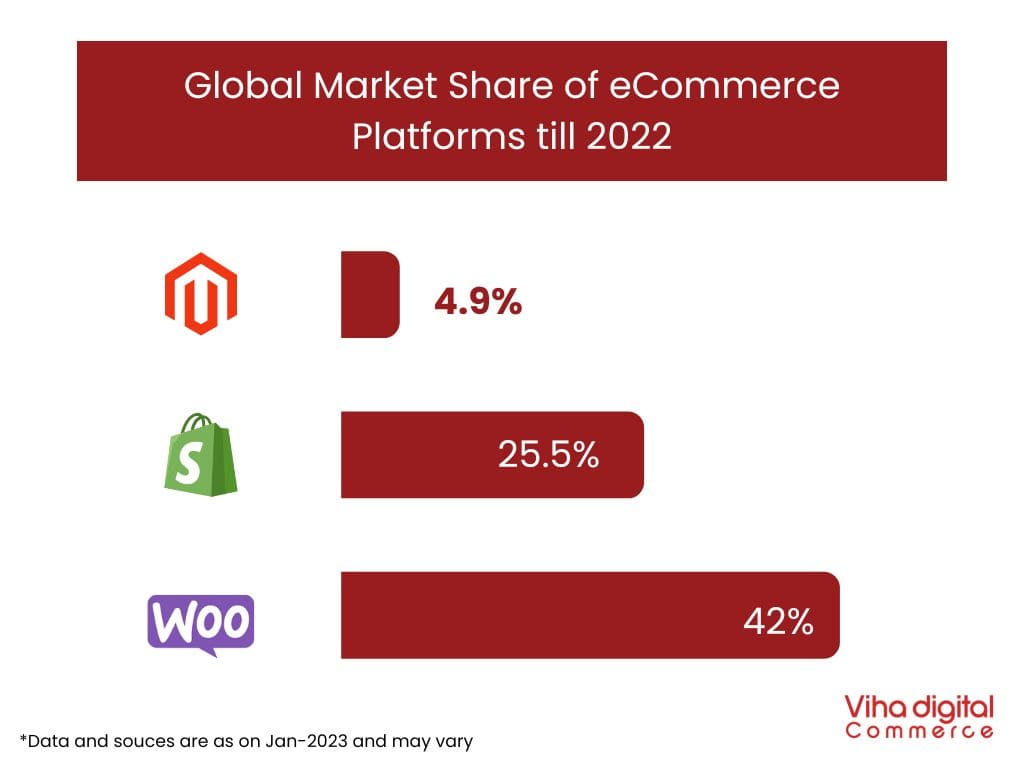
Magento: The eCommerce Platform Of The Future
As stated above, Magento is a popular open-source e-commerce platform that has been designed to meet the needs of businesses of all sizes. It provides businesses with a flexible and scalable platform that can be customized to meet their specific needs and requirements. Magento is known for its ease of use, with a user-friendly interface and a wide range of resources and support options available to help businesses get started with the platform.
In terms of features, Magento offers a wide range of customization options, allowing businesses to create a unique online store that reflects their brand and meets the needs of their customers. The platform also offers a large number of plugins and extensions that can be used to add new features and functionalities, making it ideal for businesses that want to scale their operations and reach new markets. In addition, Magento is highly secure, with built-in security features and regular security updates to protect businesses and their customers. This makes it an ideal choice for businesses that handle sensitive information, such as financial data, customer information, and other confidential information.
Magento For B2B, B2C, and B2B & B2C Businesses
Magento For B2B Business:
- Wholesale Pricing: Magento provides B2B businesses with the ability to set custom pricing for their wholesale customers.
- Volume Discounts: B2B businesses can offer volume discounts to their customers based on their purchase history and order size.
- Product Approval Workflow: Magento offers a product approval workflow for B2B businesses to review and approve products before they become available to their customers.
- Customer Segmentation: Magento provides B2B businesses with the ability to segment their customers based on factors such as purchase history, order size, and customer demographics.
- B2B Quotes: Magento offers B2B businesses the ability to create quotes and send them to their customers for approval.
Magento For B2C Business:
- Personalized Shopping Experience: Magento provides B2C businesses with the ability to personalize the shopping experience for their customers, including personalized product recommendations and targeted promotions.
- Mobile Optimization: Magento offers mobile optimization for B2C businesses to ensure that their customers have a seamless shopping experience on any device.
- Social Media Integration: Magento provides B2C businesses with the ability to integrate their online store with popular social media platforms, including Facebook, Instagram, and Twitter.
- Customer Reviews: Magento offers B2C businesses the ability to collect and display customer reviews on their products, helping to increase customer trust and sales.
- Abandoned Cart Recovery: Magento provides B2C businesses with the ability to recover lost sales by automatically sending abandoned cart emails to their customers.
Magento For B2B & B2C Business:
- Multi-Store Management: Magento provides businesses with the ability to manage multiple online stores from a single admin panel, making it easy to manage both B2B and B2C operations.
- Order Management: Magento offers a comprehensive order management system that makes it easy to manage orders, shipments, and returns for both B2B and B2C customers.
- Payment Gateway Integration: Magento provides businesses with the ability to integrate with a wide range of payment gateways, including PayPal, Stripe, and Authorize.net, to process payments for both B2B and B2C customers.
- Inventory Management: Magento offers inventory management features that make it easy to manage product availability and stock levels for both B2B and B2C customers.
- Customer Management: Magento provides businesses with the ability to manage customer accounts and customer data for both B2B and B2C customers, making it easy to segment and target specific customer groups.
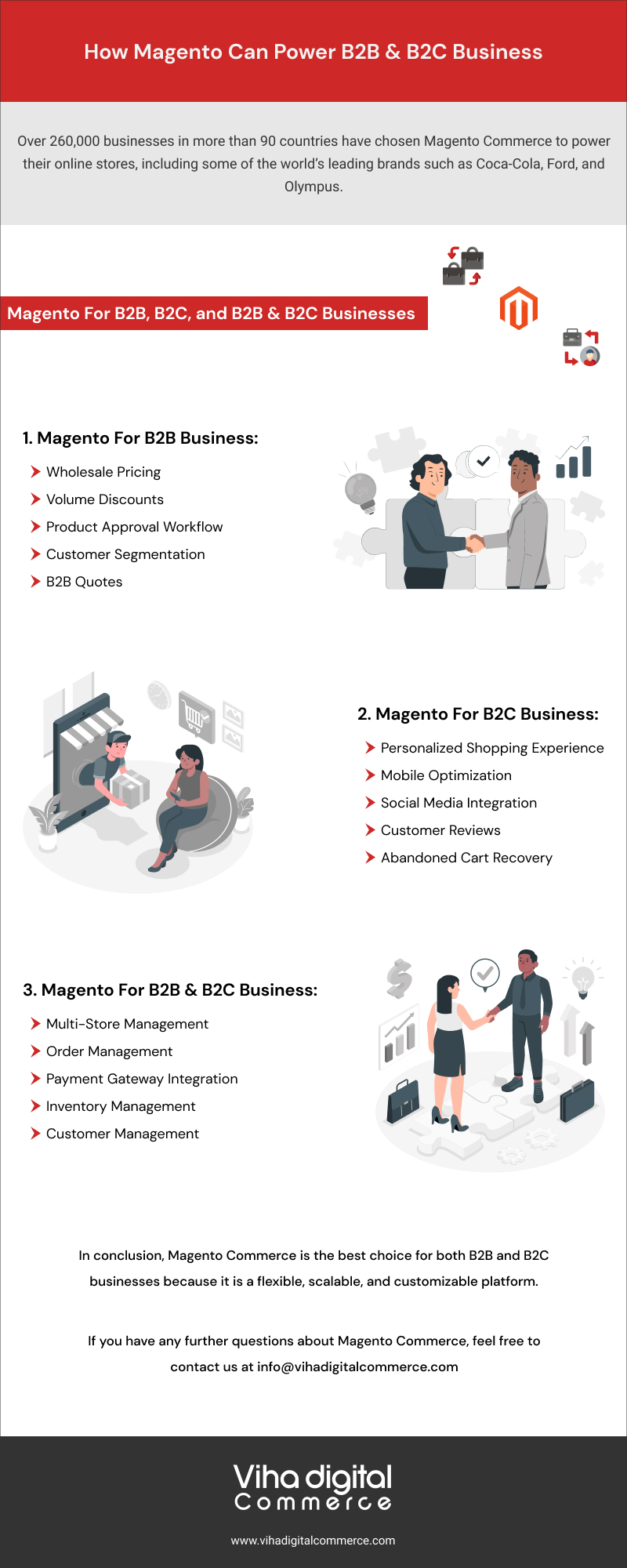
How To Open A Magento Commerce Store?
If you’re planning on opening a Magento Commerce store, there are a few things you need to do in order to get started. First, you need to procure a hosting plan that meets the system requirements for Magento Commerce. Once you have a hosting plan, you can then download the software and install it on your server. Once you have the software installed, you’ll need to set up your store and configure it to meet your specific needs.
While it is possible to do all of this yourself, we would advise you to contact a professional such as Viha Digital to help you get started. Viha Digital has a team of experienced Magento developers who can help you with everything from choosing a hosting plan to setting up your store. Contact Viha Digital today to get started on your Magento Commerce store.
The Bottom Line
In conclusion, Magento Commerce is the best choice for both B2B and B2C businesses because it is a flexible, scalable, and customizable platform. It has a wide range of features that can be tailored to meet the specific needs of any business, and it is constantly being updated with new features and security patches. If you have any further questions about Magento Commerce, feel free to contact us.

